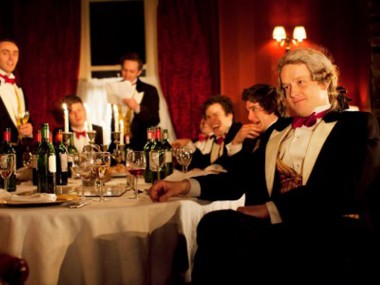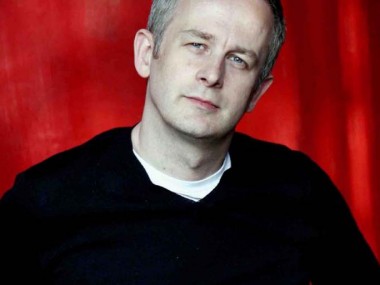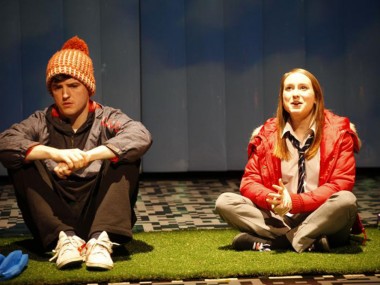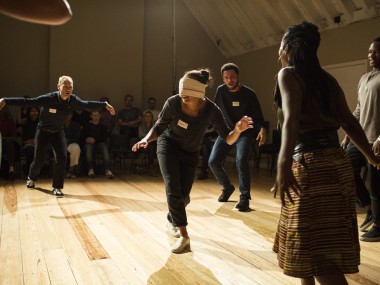Hero, Royal Court
Thursday 29th November 2012
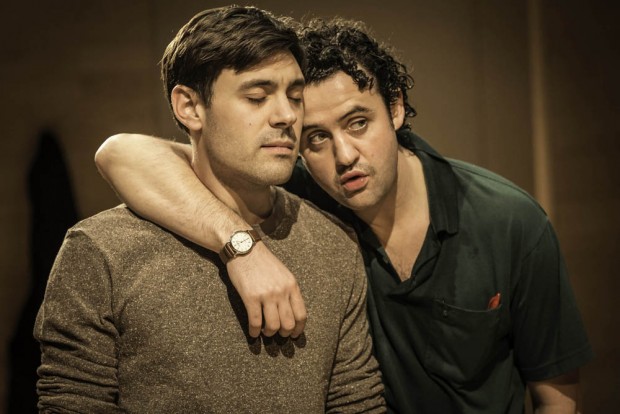
Is discretion really the better part of valour? This question arises in a particularly acute form in this new play, which looks at Danny, a gay primary school teacher who decides to come out — despite the risk of being seen as a paedo. But although it is great to enjoy EV Crowe’s follow up to her 2010 debut Kin, which was an account of a posh girls boarding school in the 1990s, does her latest — which opened tonight — have a lesson to teach us about the meaning of courage in daily life?
Danny’s choice is not ideological: it comes about almost by accident. He lives in a civil partnership with Joe, and they have applied to adopt a child. In order to be successful, Joe says that they should behave like “normal”. But, when their friend, the straight Jamie — another teacher — is bullied by some homophobic boys (who think he’s gay and who can’t even spell “faggot” correctly), Danny decides that coming out to the kids he teaches is not the most frightening thing in the world.
The first half of the play is Danny’s story, and a lot of this drama’s issues — sexual identity, societal norms, the violence of bigotry and the hope held out by a new generation — are laid out like one of Danny and Joe’s famous meals. If, like the Hawaiian pizza they have delivered, the mix of ingredients sometimes clash, this is an impressively deft, perceptive and entertaining piece of writing. The characterisation and plotting are confident, and the jokes unerringly hit their mark.
In the second part of the two-hour play, as the set changes from Danny and Joe’s lovely flat to Jamie and Lisa’s more pokey abode, the story takes a dive into the murkier psyche of Jamie. Although he works at the same school as Danny, he lacks his colleague’s shining energy and is much more troubled. This couple is also trying for a child, this time by using IVF, but Danny’s attitudes to other people are evasive, perverse and lacking in truth.
Seeing the story from two different angles deepens its themes, and Crowe’s play slowly creates a picture of a world in which individuals might be victims of an obscure fate, toyed with by distant gods, or by inexplicable dark forces. Yet the sun does flood in whenever Danny appears, an inspiring personality who poses the play’s central question: why do we ordinary mortals need heroes? And how much are courageous individuals dependent on others to validate their actions?
Hero also holds many small joys: Danny describing a lesson that teaches the kiddies about the Spanish Armada; Jamie singing “Cry Me a River”; jokes about anal sex. Although there’s a slight obscurity in Crowe’s writing, and events seem to happen as if through a clouded glass, this has the effect of heightening our concentration, honing our sympathies. Likewise, the threat of gay bashing, of violent prejudice, soaks through the drama like blood from a head wound staining a shirt.
Jeremy Herrin’s atmospheric and empathetic production makes good use of designer Mike Britton’s set, which suggests a school hall as well as a cool flat, and the doomy music is a plus. His cast is uniformly excellent. As Jamie, Danny Mays is a dynamic stage presence, an actor who can make a quick tap on a cyclist’s helmet seem charmingly humorous. When he gets angry, he radiates danger. Equally compelling is Liam Garrigan’s Danny, a personality who glows with a quiet charisma. With Tim Steed more grounded as the pragmatic Joe and Susannah Wise perfect as the slightly underwritten Lisa, this four-hander is always watchable and becomes increasingly compelling. Discretion might be the best policy, but open courage makes for great drama.
This review first appeared on The Arts Desk

